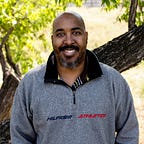Defensiveness
February is here and so is a new month of reflection around a different white supremacy characteristic. I thought I’d follow-up from perfectionism to defensiveness. These feel like hand and glove to me.
What might this look like?
● the organizational structure is set up and much energy spent trying to prevent abuse and protect power as it exists rather than to facilitate the best out of each person or to clarify who has power and how they are expected to use it
● because of either/or thinking, criticism of those with power is viewed as threatening and inappropriate (or rude)
● people respond to new or challenging ideas with defensiveness, making it very difficult to raise these ideas
● a lot of energy in the organization is spent trying to make sure that people’s feelings aren’t getting hurt or working around defensive people
● white people spend energy defending against charges of racism instead of examining how racism might actually be happening
● the defensiveness of people in power creates an oppressive culture
My reflections
a. What does this look like when I act with a defensiveness? — All swagger and no humility sums it up! It’s like someone dared to challenge my good intentions and HAD to be wrong cause I’m dang close to perfect.
b. What feelings do you have when you act with defensiveness? — Not only do I feel superior, I feel like I deserve better treatment than what I’m getting. Those are my initial feelings. As time passes I start to wonder if there is a VERY small chance I was wrong.
c. What policies and/or practices does your work/organization reinforce or encourage defensiveness? — I was thinking about the performance evaluation process and how it feels designed only for punitive measures. With merit based pay the chances of getting a high enough score to receive merit. Literally the top tier is for going above and beyond your job and that extra line of “and any duties assigned” is like the never ending catch all. It’s the perfect way to add more work without more pay and when you get “graded” on your work you don’t get the credit for doing more cause you were just doing what was assigned and that’s middle of the road rating. So I find myself trying to defend the work I’m doing.
d. What actions can you take to go from defensiveness to vulnerability? — Honestly, this is where going to therapy every other week and learning to mindfully breathe is giving me life. Also, I was trained in Arbinger a decade ago and revisiting the thoughts and concepts of that book keeps me balance and more vulnerable than not. I hope.
e. What benefits do you think you would get from applying more of the replacement characteristics? — Being at peace with myself allows me to see other people’s full humanity and opens me up to a desire to help things go right.
Action Plan Statement
From now on when I feel the urge to act with defensiveness, I will revisit Arbinger and take a moment to mindfully breathe because it provides me with an opportunity to be at peace with myself and see others full humanity. I will also support my work/organization to address the defensiveness by addressing the performance evaluation process. When I do act with defensiveness, I will give myself some grace, acknowledge the impact I had on others, and engage in repair work by engaging with those impacted by my behaviors.
“Vulnerability is the birthplace of innovation, creativity, and change.” — Brene Brown
What might this look like?
● the organizational structure is set up and much energy spent trying to prevent abuse and protect power as it exists rather than to facilitate the best out of each person or to clarify who has power and how they are expected to use it
● because of either/or thinking, criticism of those with power is viewed as threatening and inappropriate (or rude)
● people respond to new or challenging ideas with defensiveness, making it very difficult to raise these ideas
● a lot of energy in the organization is spent trying to make sure that people’s feelings aren’t getting hurt or working around defensive people
● white people spend energy defending against charges of racism instead of examining how racism might actually be happening
● the defensiveness of people in power creates an oppressive culture
More reflection in comments
